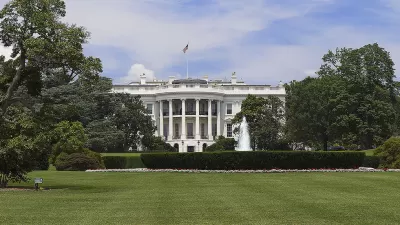New political leadership in Cincinnati is centering housing equity in a proposal that would ease zoning restrictions and streamline Low Income Housing Tax Credits, among other measures.

New Cincinnati Mayor Aftab Pureval announced this week a package of housing reforms that could potentially put a major dent in the city's supply of single-family zones.
Allison Babke summarizes the package as follows in an article for CityBeat:
Pureval said that he will introduce a motion to Cincinnati City Council to conduct a comprehensive housing incentive and zoning review. The motion also would engage residents and remove housing barriers, Pureval said. The review and legislation that follows will guide Cincinnati's future growth and boost mixed-income affordable housing instead of concentrating incentives in neighborhoods that already are wealthy, he added.
According to Babke, Reggie Harris, council member and chair of the equitable growth and housing committee, is already working on a proposal to "update zoning laws that currently deem certain multi-family units illegal."
Both Mayor Puerval and Councilmember Harris are quoted in the article iterating the importance of equity in guiding housing reforms, increasing housing options and affordability in Cincinnati neighborhoods that historically have been left out of redevelopment investments.
A separate article by Becca Costello for WVXU headlines a different component of the proposal: tax abatements to developers applying for federal Low-Income Housing Tax Credits (LIHTC). Councilmember Harris, again, is writing an ordinance that would streamline the LIHTC application process.
Additional news coverage of Cincinnati's new housing reform agenda is available in articles for WCPO and Spectrum News 1.
FULL STORY: Cincinnati Announces New Equitable Housing Policy Reforms

Trump Administration Could Effectively End Housing Voucher Program
Federal officials are eyeing major cuts to the Section 8 program that helps millions of low-income households pay rent.

Planetizen Federal Action Tracker
A weekly monitor of how Trump’s orders and actions are impacting planners and planning in America.

Ken Jennings Launches Transit Web Series
The Jeopardy champ wants you to ride public transit.

Washington Legislature Passes Rent Increase Cap
A bill that caps rent increases at 7 percent plus inflation is headed to the governor’s desk.

From Planning to Action: How LA County Is Rethinking Climate Resilience
Chief Sustainability Officer Rita Kampalath outlines the County’s shift from planning to implementation in its climate resilience efforts, emphasizing cross-departmental coordination, updated recovery strategies, and the need for flexible funding.

New Mexico Aging Department Commits to Helping Seniors Age ‘In Place’ and ‘Autonomously’ in New Draft Plan
As New Mexico’s population of seniors continues to grow, the state’s aging department is proposing expanded initiatives to help seniors maintain their autonomy while also supporting family caregivers.
Urban Design for Planners 1: Software Tools
This six-course series explores essential urban design concepts using open source software and equips planners with the tools they need to participate fully in the urban design process.
Planning for Universal Design
Learn the tools for implementing Universal Design in planning regulations.
Heyer Gruel & Associates PA
Ada County Highway District
Institute for Housing and Urban Development Studies (IHS)
City of Grandview
Harvard GSD Executive Education
Toledo-Lucas County Plan Commissions
Salt Lake City
NYU Wagner Graduate School of Public Service





























